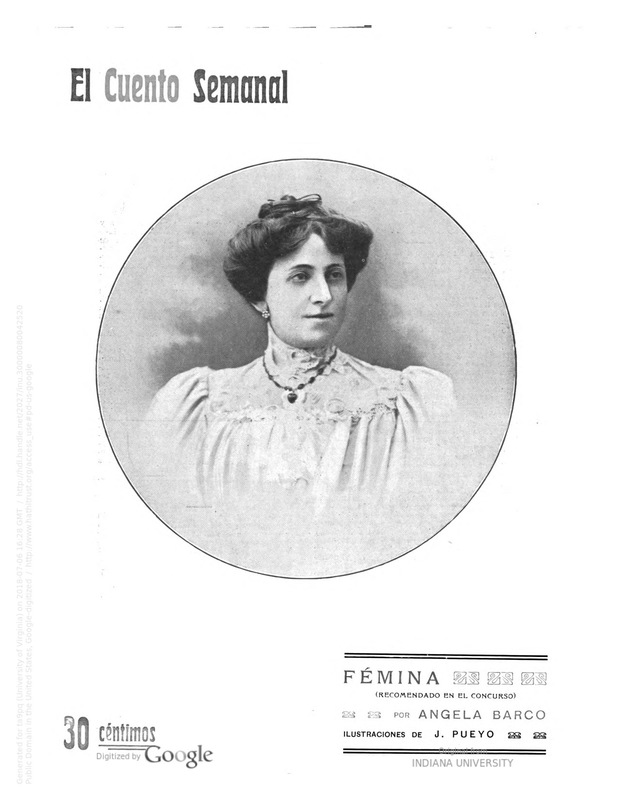Ángela Barco
ÁNGELA BARCO is a perfect example of a well-known writer whose legacy has since been forgotten. She was born in Salamanca, probably in 1878, although the exact year is unknown. She wrote stories for local newspapers, which were published under the pseudonym "Pedro del Valle," and she was well-known among journalists.
Barco's feminism
Her more mature works, especially those published in her early twenties (late 1900s and early 1910s) evince a feminist preocupation with the question of the current state of Spanish women. 1909 seems to have been a watershed for her feminist writings. In May El Castellano publishes a column titled "Del 'feminismo'," and a longer essay, Del ruralismo femenino, is published in España Futura. Perhaps her most controversial essay, "El hijo," an essay that would spark a student revolt in Valladolid in May 1910, is first published in España Futura in June, and it is a sharp indictment of the hypocrisy of the obsession of middle-class families with the success of the son at the expense of the daughter's well-being. She received a financial grant from the Junta para la Ampliación de Estudios e Investigaciones Científicas to study the question of rural women in France in 1911-1912.
Barco's Fémina (1910)
Barco's only work of kiosk literature, Fémina, was published El Cuento Semanal, no. 171, 1910, and it deals with the negative consequences that the middle-class ideology of domesticity has on the female protagonist. I've written an article analyzing this aspect of the novel, "De-essentializing Femininity in Ángela Barco's Fémina (1910)," which I've included below.
Fémina, El Cuento Semanal, no. 171, 1910
